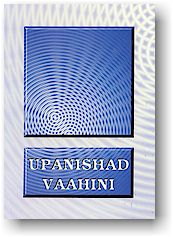| To Netnews Homepage Index |
|
 Sri Sathya Sai Baba Sri Sathya Sai BabaUpanishad Vahini 85 pages «Man is essentially Divine. However, he believes himself to be an individual, limited and temporary, because he is entangled in the characteristics of the Five Elements, namely, Sound, Touch, Form, Taste and Smell. This error brings about joy and grief, good and bad, birth and death. To escape from this association with the Elements, to rid oneself of the pulls of their characteristics, is the sign of Liberation, called in Sanskrit as Kaivalya, Moksha or Mukthi. Names may change; but the achievement is the same. While entangled in the Five Elements, man is attracted, distracted or disappointed by them; all this causes distress. Wealth, possessions - vehicles, buildings - all these are transmutations of the elements. Man craves for them; when he loses them or fails to get them, he spurns them. Let us take the Five Elements, one by one. The living being has the first one, the Earth, as its base. Water, the second, is the basis for the earth. Water is produced from Fire, the third element, Fire itself emanating from Wind, the fourth. Wind or Vayu arises from Ether, or Akasa. Akasa emerges from the Primal Nature and the Primal Nature is but the manifestation of one aspect of the majesty of God, or the Supreme Sovereign Atma, the Param-atma. Seeking to reach that Param-atma, the source and core of the Universe, the Individual or Jivi, who has entangled himself in the elements, has to overcome, by discrimination and steady practice of detachment, the bonds one by one; such a person is a Sadhaka; he who wins in this struggle is the Jivan-muktha, "Liberated even while alive."» - Sri Sathya Sai Baba, Upanishad Vahini, I «This book which gives, in
English, Sathya Sai Babas articles (first published in Telugu in the Sanathana Sarathi) on
the Ten Upanishads (invaluable text-books on spiritual discipline and on the glorious
fruit of spiritual adventure) will reveal to you the vast limitless Mercy which impels Him
to save us from trivialities and prompts Him to guide us along, until we reach the Goal of
Life. - N. Kasturi, Dear Reader Synopsis: Upanishadvahini; Isavasyopanishad; Kathopanishad; Mundakopanishad; Mandukyopanishad; Brihadaaranyakopanishad; Prasnopanishad; Kenopanishad; Chandogya Upanishad; Aithareyopanishad; Taittiriyopanishad; Brahmanubhava Upanishad. Last Updated Saturday, January 16, 1999 |
|
| To Netnews Homepage Index |